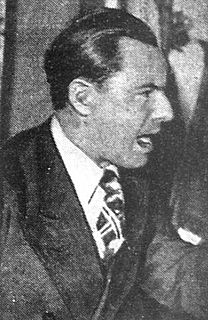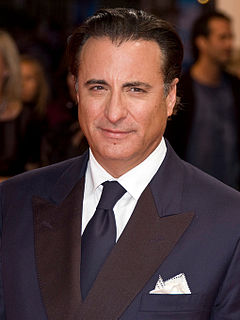A Quote by Noam Chomsky
The Bolshevik revolution was a counter-revolution. Its first moves were to destroy and eliminate every socialist tendency that had developed in the pre-revolutionary period. Their goal was as they said; it wasn't a big secret. They regarded the Soviet Union as sort a backwater. They were orthodox Marxists, expecting a revolution in Germany. They moved toward what they themselves called "state capitalism," then they moved on to Stalinism. They called it democracy and called it socialism. The one claim was as ludicrous as the other.
Quote Topics
Big
Bolshevik
Capitalism
Claim
Counter
Democracy
Destroy
Developed
Eliminate
Every
Expecting
First
Germany
Goal
Had
Ludicrous
Moved
Moved On
Moves
Orthodox
Other
Period
Regarded
Revolution
Revolutionary
Said
Secret
Socialism
Socialist
Sort
Soviet
Soviet Union
Stalinism
State
Tendency
Themselves
Then
They Said
Toward
Union
Were
Related Quotes
Only the defeat of the proletariat in Germany in 1923 gave the decisive push to the creation of Stalin's theory of national socialism: the downward curve of the revolution gave rise to Stalinism, not to the theory of the permanent revolution, which was first formulated by me in 1905. This theory is not bound to a definite calendar of revolutionary events; it only reveals the world-wide interdependence of the revolutionary process.
Taken as a whole, the Chinese revolutionary movement led by the Communist Party embraces the two stages, i.e., the democratic and the socialist revolutions, which are two essentially different revolutionary processes, and the second process can be carried through only after the first has been completed. The democratic revolution is the necessary preparation for the socialist revolution, and the socialist revolution is the inevitable sequel to the democratic revolution. The ultimate aim for which all communists strive is to bring about a socialist and communist society.
It is not to save capitalism that we fight in Russia … It is for a revolution of our own. … If Europe were to become once more the Europe of bankers, of fat corrupt bourgeoisies we should prefer Communism to win and destroy everything. We would rather have it all blow up than see this rottenness resplendent. Europe fights in Russia because it [i.e., Fascist Europe] is Socialist. what interests us most in the war is the revolution to follow The war cannot end without the triumph of Socialist revolution.
So far as Chairman Mao's own hopes were concerned, he initiated the "Cultural Revolution" in order to avert the restoration of capitalism, but he had made an erroneous assessment of China's actual situation. In the first place, the targets of the revolution were wrongly defined, which led to the effort to ferret out "capitalist roaders in power in the Party". Blows were dealt at leading cadres at all levels who had made contributions to the revolution and had practical experience, including Comrade Liu Shaoqi.
All the talk about the so-called unspeakable horror of early capitalism can be refuted by a single statistic: precisely in these years in which British capitalism developed, precisely in the age called the Industrial Revolution in England, in the years from 1760 to 1830, precisely in those years the population of England doubled.
We Marxists believe that a revolution will also take place in other countries. But it will take place only when the revolutionaries in those countries think it possible, or necessary. The export of revolution is nonsense. Every country will make its own revolution if it wants to, and if it does not want to, there will be no revolution.
Except for the small revolutionary groups which exist in all countries, the whole world was determined upon preventing revolution in Spain. In particular the Communist Party, with Soviet Russia behind it, had thrown its whole weight against the revolution. It was the Communist thesis that revolution at this stage would be fatal and that what was to be aimed at in Spain was not workers' control, but bourgeois democracy. It hardly needs pointing out why 'liberal' capitalist opinion took the same line.
When you think of power, you think the state has power. When you look at it in terms of revolution, in terms of the state, you think of it in terms of Russia, the Soviet Union, and how those who struggled for power actually became victims of the state, prisoners of the state, and how that led to the dissolution of the Soviet Union. We have to think of revolution much more in terms of transitions from one epoch to another. Talk about Paleolithic and Neolithic.
The International Brigade was not formed to protect freedom and democracy. It was founded as a tool of of the Comintern, to promote the interests of the Soviet Union - and thereby of Joseph Stalin, the butcher of millions. It made political sense for the International Brigade to recruit non-communists - useful fools was what Lenin had called such people in an earlier manipulation of gullible decency - but of course most were then vetted by the NKVD, the Soviet Union's secret police.
When you think of power, you think the state has power. When you look at it in terms of revolution, in terms of the state, you think of it in terms of Russia, the Soviet Union, and how those who struggled for power actually became victims of the state, prisoners of the state, and how that led to the dissolution of the Soviet Union. We have to think of revolution much more in terms of transitions from one epoch to another.
I don't. We've had three technological revolutions that have changed the course of human history, all driven by physics. In the first, the industrial revolution, physicists developed Newtonian mechanics and thermodynamics, which gave us the steam engine and machine power. The second technological revolution was the electricity revolution. That gave us radio, television, and telecommunications. Then, physicists developed the laser and the transistor.




































